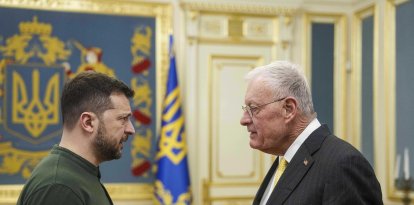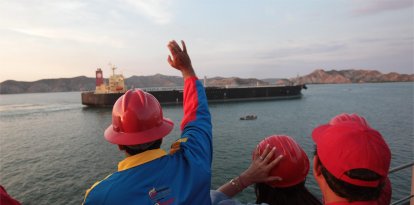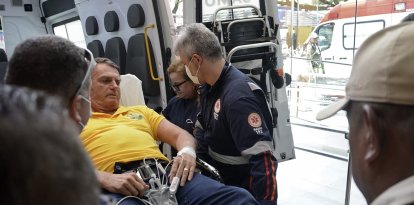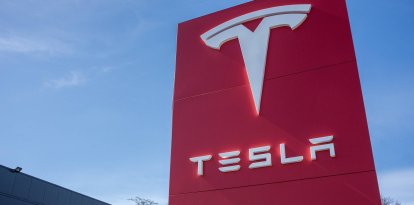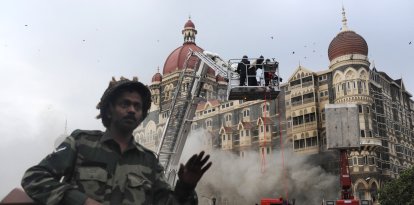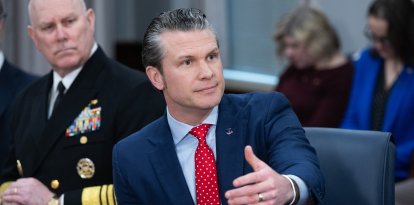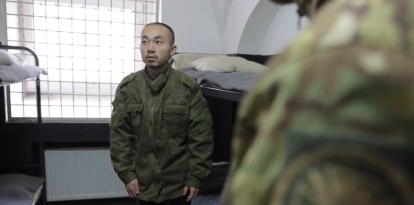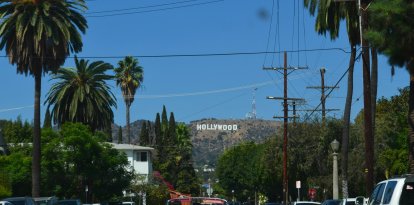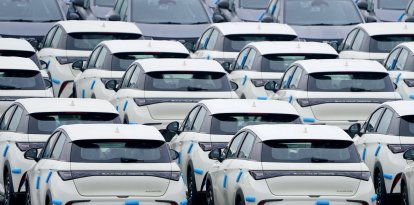Maduro intensifies efforts to win over U.S. oil investors a few days before elections in Venezuela
The dictator promised businessmen stability, legal security and peace, although the effectiveness of these promises remains uncertain.

Nicolas Maduro speaking during a campaign rally in Caracas.
In the run-up to the upcoming presidential elections, Nicolas Maduro is stepping up his efforts to attract foreign investment with the aim of revitalizing Venezuela's oil industry. Maduro promises stability, legal security and peace, although the effectiveness of these commitments is uncertain.
During a recent visit to a Chevron plant that reopened last year, Maduro made a direct appeal to U.S. investors via state television. "Your investment is welcome in Venezuela, so we can work together toward a different U.S.-Venezuela relationship. We guarantee stability, legal security, peace, win-win relations," Maduro declared, despite the fact that his administration has been responsible for the economic deterioration of the country during his 11 years in power.
According to a report by The Wall Street Journal, in Maduro's first decade in office, Venezuela suffered an economic contraction nearly 80% and a drastic drop in oil production. Government policies led the country to default and be excluded from the international financial system. Under the regime of Hugo Chávez, his predecessor, more than 1,000 companies were nationalized, many of which subsequently collapsed.
Despite an economic collapse that has devastated the energy sector and forced a quarter of the population to emigrate, Maduro assures that only he can restore economic stability. "I’m a man of my word, a trustworthy guy," he said during the tour of the Chevron plant, touting 10 new agreements his regime signed with investors, without revealing details of the alleged deals.
Maduro's strategy
Maduro has promised a supposed "great national dialogue" with all political and economic actors and has warned of possible violent consequences if he loses the elections. In addition, he has offered lucrative deals to U.S. companies, seeking their support in persuading Washington to lift economic sanctions on his regime.
Election controversy and divided opinion.
As Venezuela's presidential elections approach, Nicolás Maduro seeks to position himself as the business-friendly candidate. However, diplomats and analysts alike suggest that his stay in power could depend on electoral manipulation, similar to the strategies he used in the past to secure his victory.
For many business executives and analysts, Venezuela's economic stability and international recognition are conditional on free and fair elections. However, the Maduro regime has been accused of restricting the participation of political rivals and jailing dissidents, further complicating the lifting of international sanctions imposed on his regime.
Meanwhile, the business community is divided over Venezuela's economic future. Some investors see opportunities in the investment offers proposed by the Maduro regime, considering that the current regime could offer relative stability compared to a change in leadership. On the other hand, there are those who argue that only a transition of power that restores the rule of law could bring real stability and restore the country's international credibility. These investors fear that a change of government could trigger further instability, which would negatively affect the prospects of re-establishing Venezuela as a key supplier of oil to the United States.
RECOMMENDATION
